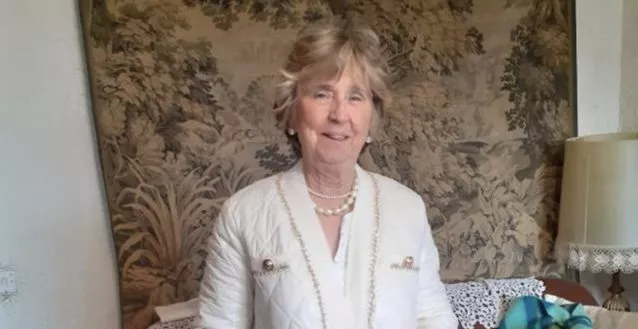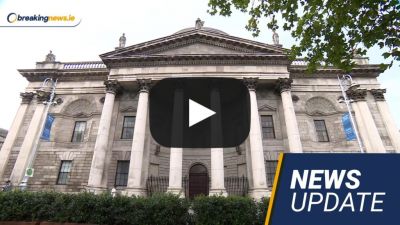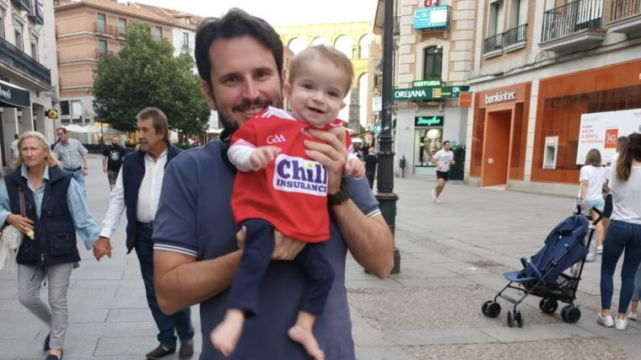An Irish grandmother is celebrating after her Spanish grandchild, who is just over one year old, has become the world’s first ever recipient of an intestine transplant.
Helen O'Sullivan, who is originally from Blarney in Co Cork but has lived in Spain for 47 years, says that her grandchild Emma, daughter of her son Daniel Lafora O'Sullivan, was born with a short intestine.
Her health went rapidly downhill until she had the multi visceral transplant at Madrid's La Paz Hospital five months ago. Along with the intestine the now 17-month-old also needed and received a new liver, stomach, spleen and pancreas.
The cutting edge surgery lasted 14 hours. Emma has now been given a perfect bill of health. Emma received the organ via asystole donation. In such an operation the donor's organs are artificially preserved through a system known as extra corporeal membrane oxygenation.
The intestine had to be removed before the donor died as it would have deteriorated immediately upon death.
Mrs O'Sullivan told the Opinion Line, on Cork's 96FM, that her granddaughter has made a remarkable recovery since the arduous operation.

"She is a lovely little girl. She is absolutely thriving at the moment. Fantastic. Fully recovered. When Anna the mother was eight months pregnant they diagnosed that the intestine (of the baby) was just a little bit short. That was it. They said 'don't worry when the baby is born there will be a little operation and everything will be okay.'
"Of course when the baby was born it was complicated. The intestine itself was not just short it was ultra short. So a transplant was the only way."
Mrs O'Sullivan said that Emma was in hospital for six months after she was born.
"She had four operations before the transplant. Unsuccessful naturally. The team who operated on were researching for only three years which was very little. Emma her case was so deteriorated that they had no choice (but to do the operation).
"They said 'we are going to try it. It is a very risky operation.' Of all the transplants the intestine has the highest risk of failure. It is a living organ. Not only did she have the liver transplant she had the spleen transplant, the bowel and the pancreas of course. It was a very heavy transplant as you can imagine. It all happened so suddenly."
Helen says that they "got back a new baby".
"The organ had to be transplanted and it couldn't deteriorate in the meantime. Everything was so quick. They had to sign naturally if it wasn't successful. It was the worst day of our lives and then the best day. They kept it alive until Emma arrived. It took 14 hours in the operating theatre.
"We were waiting outside. The little baby was four days in intensive care without knowing if it was a success.The most important thing is that she had no rejection whatsoever. No side effects. That is why it has been so successful.
"It could have been rejection. The surgeons are delighted with their breakthrough as this is a breakthrough for other patients. All of the organs are from the same baby. "
Helen said the surgeons went above and beyond the call of duty.
"They came to see the baby everyday. The surgeon gave us back all our lives because before the operation we had no quality of life.
"Emma had blood transfusions once a month and we feared she would not make it as she was fading. This was a miracle. But it’s very sad for the parents who agreed to the donation as their baby died."

She added that the entire cost of the operation and the care of her grandchild was paid for by the State in Spain.
“If we had to pay we would have had to sell all we owned.”
Meanwhile, Francisco Hernadez Oliveros, head of paediatric surgery at La Paz Hospital, told a press conference at the hospital earlier this week that the operation was a "pioneering intervention".
"This is very promising for other children who may be in the same situation as Emma."







